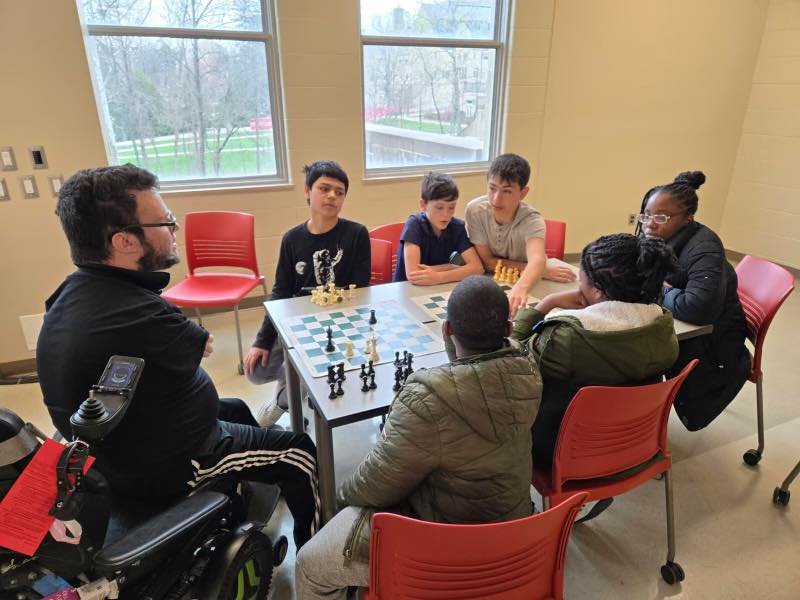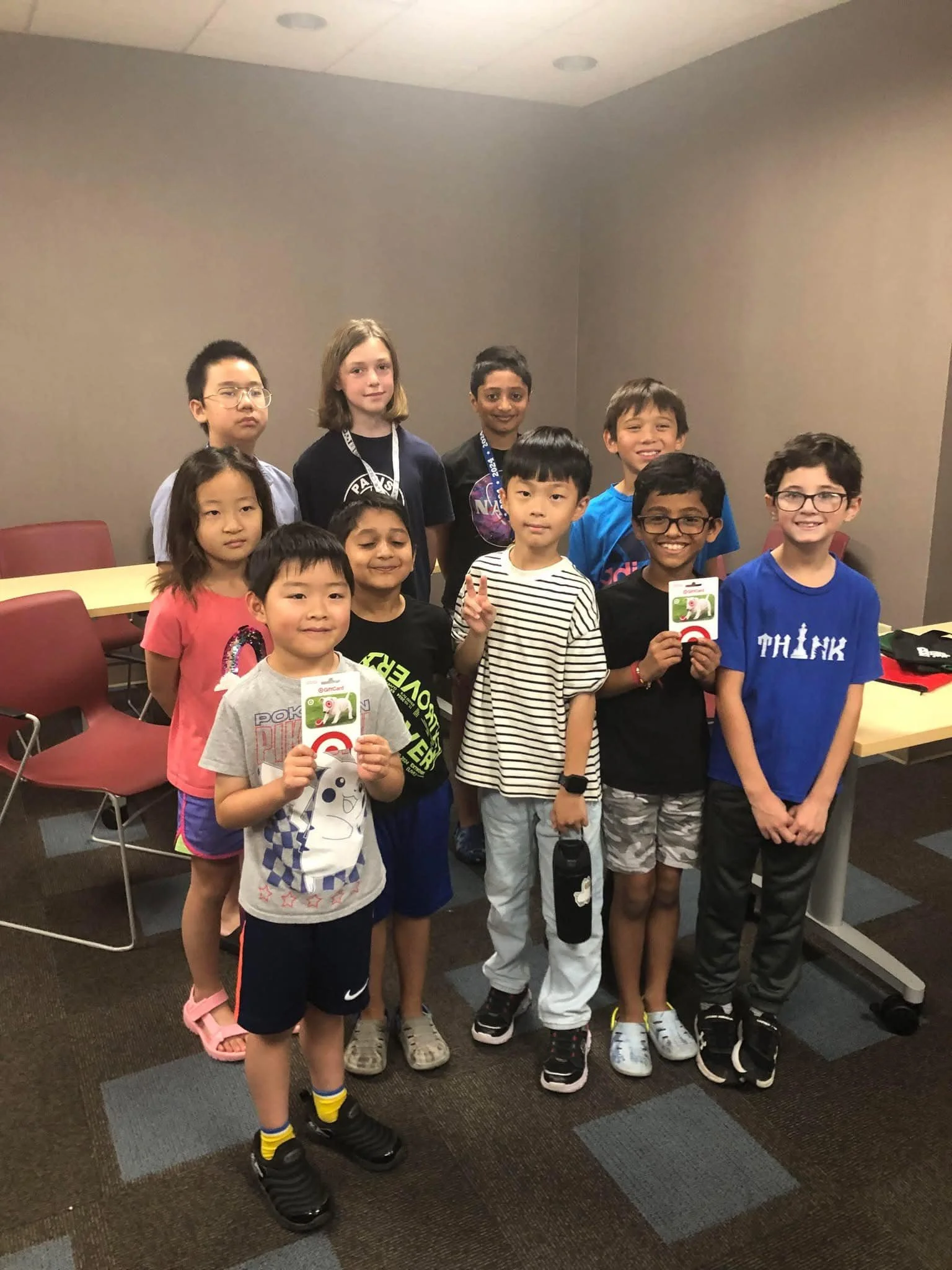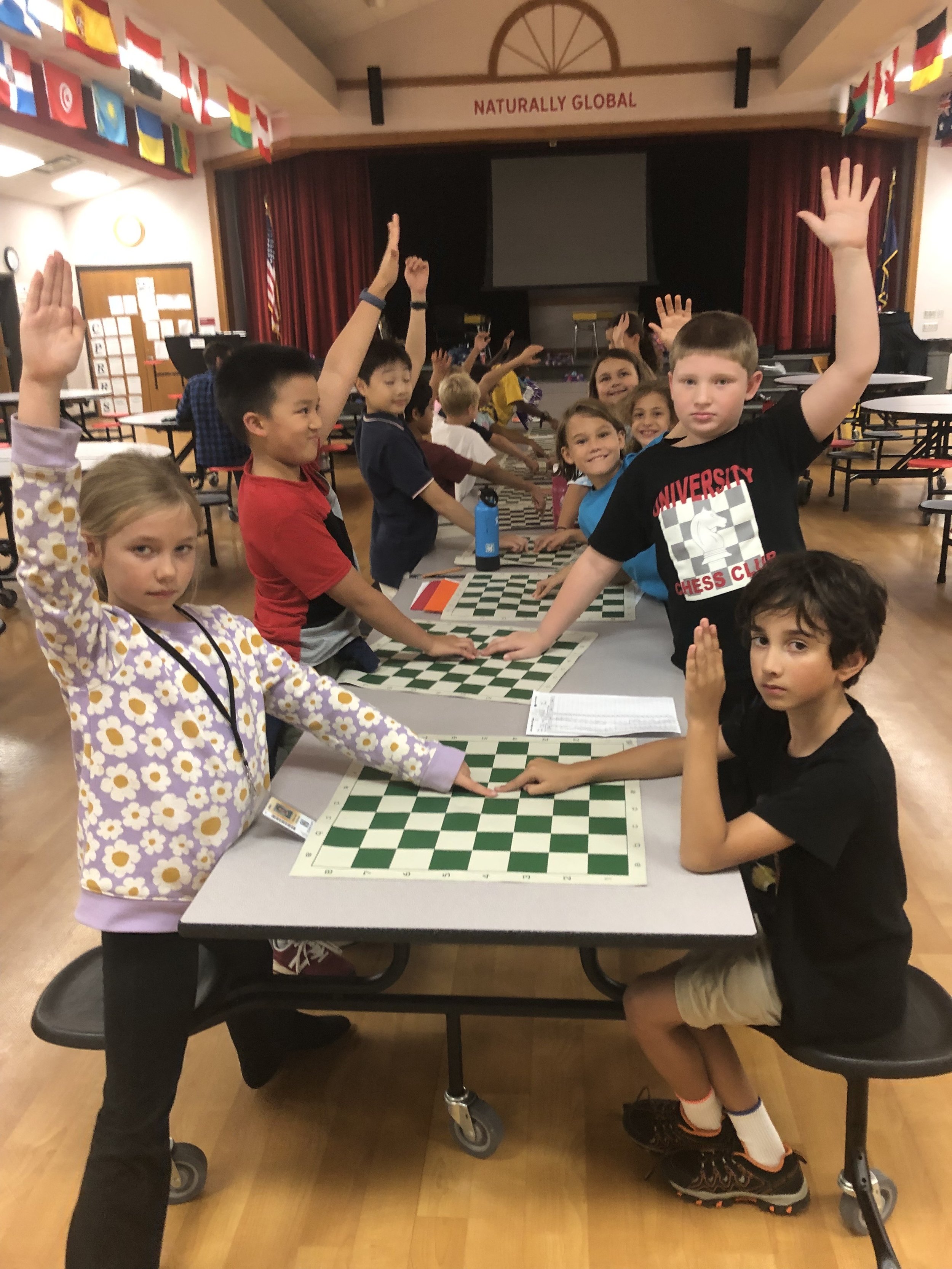















Become a chess apprentice and grow skills in a structured environment!
Earn 150 HCA points for every PIT Meet you attend!
PIT Meets are Hoosier Chess Academy’s signature monthly training sessions for children of all levels. They’re structured, growth-focused, and fun—more than just a “club meeting.” Using the Viceroy Curriculum, apprentices learn through a mix of interactive lessons, problem-solving, and supervised gameplay so every child progresses at their own pace. All children are welcome, regardless of background or starting skill level.
1:30-3:30pm, first Sunday every month
Faith Lutheran Church, 2200 S High St, Bloomington, I
Grades PK-12 divided into small, age-appropriate groups for the best learning experience—all children welcome
$10/meet, $5 for unlimited siblings, first visit free and scholarships available year-round
We use the Viceroy Curriculum to differentiate chess instruction through lessons, problem-solving, and gameplay to help every student grow at their own pace
Leveling-up ceremonies every meet! Each meet brings you closer to your next rank. Earn ranks, badges, and certificates!
How to Register >>
F.A.Q.
-
Your child joins as an apprentice and advances through clearly defined ranks. Our experienced coaches—called Marshals—guide each apprentice toward the specific skills needed to reach the next rank. On their first day, apprentices complete a short pre-assessment so we can place them at an appropriate starting rank. From there, consistent attendance helps apprentices progress more quickly, but no one is ever left behind—every child is welcomed back and supported when they return.
-
Apprentices are placed into the following ranks, ordered hierarchically:
♟ PAGE
(introductory rank focused on foundations: rules, check/checkmate, piece safety, basic mates, and good chess habits)
♝ SQUIRE
(early tactics and opening principles: center control, development, basic tactical themes like pins, forks, and skewers)
♞ KNIGHT
(intermediate play: coordinating pieces, defending/attacking plans, common tactical ideas like discovered attacks and double attacks)
♜ ROOK
(advanced scholastic level: calculation, simple endgames and rook activity, building a basic opening repertoire, evaluating positions)
♚ QUEEN/KING
(top apprentice tiers: deeper planning and endings, advanced tactics, leadership and model habits; highest recognition within the apprentice system)
-
Apprentices earn promotions through participation, skill mastery, and steady effort. Lesson groups tailor instruction to each rank’s requirements, and Marshals assess when an apprentice has demonstrated readiness for the next step. Consistent attendance accelerates progress, but every apprentice is celebrated for their growth whenever it happens.
When is the right time to test out? Testing is most effective after an apprentice has attended several meets at their current rank, shown confidence in lesson material, and demonstrated consistency during both guided lessons and gameplay. Marshals may recommend testing when they see a child meeting the requirements, but apprentices are also encouraged to ask when they feel ready. Our goal is to ensure testing feels like a natural next step in their growth, not a rushed hurdle.
Testing opportunities are built into our programming so every apprentice has a chance to advance:
3:00–3:30pm range during PIT Meets (see the structure of times further below)
In between matches during the Hoosier Chess Circuit, third Sunday every month
During select parts of summer chess camp
-
We celebrate! Advancing in rank is recognized with a short ceremony, an update on our poster board, and continued recognition on the apprentice’s name badge. We also award prestigious medals to apprentices who demonstrate effort, consistency, and passion as they climb higher with chess. These milestones are about more than the game—they build resilience, focus, teamwork, and pride that transfer to school and life beyond chess.
-
1:30–2:00 Free chess play with fellow apprentices and Marshals
2:00–2:10 Award ceremony
2:10–3:00 Lesson groups
3:00–3:30 Stations
Station 1: Assessment station
Station 2: Practicing/learning a selected skill
Station 3: Continuation of free chess play


